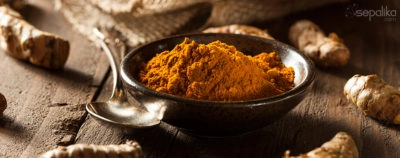
Living Well
Reducing Inflammation: Why Great Food May Not Result In Great Nutrition For Your Cells
Jun 28, 2016Inflammation can be reduced through the right nutrition. Changes to diet and lifestyle, are essential first steps in feeling better and getting healthy. However, sometimes, this may not be enough.
Here’s why:
- Digestion: For some, it’s a digestive system that’s functioning less than optimally, so we’re not breaking things down fully to be absorbed.
- Stress: When we’re too stressed, so our body burns through minerals and nutrients at an even higher rate (like magnesium!), meaning we need higher levels, particularly during times of stress or overwork.
- Genetic factors: Due to genetic defects, meaning mutation in certain parts of our DNA, we may need more of certain nutrients and even different forms of them, otherwise our body won’t be able to absorb and use them.
So supplementation is often an important add-on for those of us that are struggling with symptoms. They ensure we’re getting what we need to function optimally.
5 Superstar Dietary Supplements That Fight Inflammation
Ginger
A 2015 study showed that ginger reduces allergic fight inflammation. The nice thing about this warming spice is that you can not only take it in supplement form, but cook with it whenever possible too.
- Dosage: When used as a dietary supplement in a research study, a 2-gram extract of ginger reduced risk markers of colon cancer.
Turmeric
This is another spice that’s extremely powerful in lowering inflammation, and one you can cook with. You’ll want to, once you learn how powerful it is in lowering fight inflammation. A 2014 study revealed that natural compounds isolated from turmeric root, “significantly inhibited the production of inflammatory cytokines.” Study authors labeled it as anti-inflammatory and anti-hyperglycemic (high blood sugar), meaning these turmeric-derived isolates protected against diabetes by lowering insulin and glucose.
- Dosage: At 500 mg twice a day, osteoarthritis patients reported improvements in pain and functionality in 2-3 months. At 1.4 grams a day, divided into two equal doses, patients in a double-blind study in 2012 found a substantial lowering of their LDL, triglycerides and other cholesterol markers of inflammation.
Omega-3 Fatty Acids
There’s a reason that wild fish and seafood form a basis of the infamous Mediterranean diet, and why fish consumption is often recommended for those with depression: omega 3s are amazing inflammation fighters. The omega-3 fatty acids EPA and DHA have anti-inflammatory properties, and so may be helpful in the management of inflammatory and autoimmune disorders like multiple sclerosis, migraines, arthritis, Crohn’s disease, coronary heart disease, depression, and others. Study authors of a 2002 paper wrote,
“Many of the placebo-controlled trials of fish oil in chronic inflammatory diseases reveal significant benefit, including decreased disease activity and a lowered use of anti-inflammatory drugs.”
- Dosage: Omega 3 fatty acids have an overwhelming body of evidence in human studies, across various inflammatory disorders. 2-3 grams per day is the average dose that seems to be most effective. Doses in excess of this may increase the risk of clot formation in those with platelet aggregation disorders.
Magnesium
Magnesium’s role can be seen in a multitude of disease states, including diabetes, heart disease, migraines, various autoimmune diseases…the list goes on. Magnesium status goes hand in hand with inflammation in the body—inflammation depletes magnesium, so those with chronic low-grade inflammation are often low in this important mineral, unless they supplement regularly. A 2014 study put it quite clearly: “Subclinical magnesium deficiency caused by low dietary intake often occurring in the population is a predisposing factor for chronic inflammatory stress that is conducive for chronic disease. Magnesium deficiency should be considered a nutrient of significant concern for health and well-being.”
- Dosage: As a mineral that has been studied in human across a wide variety of disease states, doses vary between 250-500 mg of elemental magnesium per day, often in 2-3 divided doses. The magnesium oxide form is poorly absorbed and works best for constipation, while other forms of magnesium, such as the citrate and the malate forms, are much better for anti-inflammatory purposes.
Vitamin C
This wonder vitamin does it all, from collagen rebuilding to helping with stress to bolstering our immunity. Authors of a 2014 study done on ascorbic acid (vitamin C) said that it is “important in all stressful conditions that are linked to inflammatory processes and involve immunity. It has been known for decades that the persistence of an inflammatory stimulus is responsible for the onset of many diseases. Another study of cancer patients taking high-dose IV vitamin C was shown to affect C-reactive protein levels and pro-inflammatory cytokines.
- Dosage: This is a slightly controversial topic; since it is water soluble, aggressive proponents of this most-potent anti-inflammatory vitamin like it at a dose of up to 12 grams a day!
If you take too much, they say, and you will get loose stools and will merely pass the excess out in your urine. The literature supports safe use of Vitamin C up to 3grams a day.
Editor’s Note: Dose varies from individual to individual and even in that, from whether you are merely taking a maintenance dose or if you are fighting disease. At sepalika.com, we support the approach of Andrew Saul, who has taken enormous troubles to compile the work of medical giants like Dr.Robert Cathcart into a practical guide for high-dosing with Vitamin C. It’s available free here.
So are you ready to kick inflammation to the curb? We hope this article has helped to prepare you in the fight against chronic, low-grade inflammation. Using a combination of the right foods, lifestyle changes, and supplements, you can’t go wrong!
Know more about our program: Bounce Back from PCOD, Naturally





